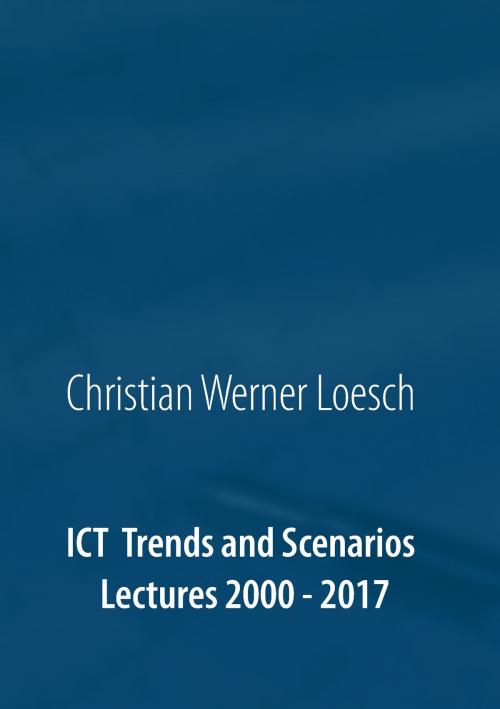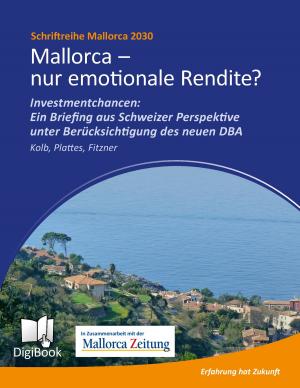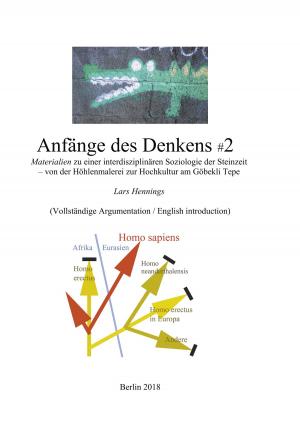| Author: | Christian Werner Loesch | ISBN: | 9783744846912 |
| Publisher: | Books on Demand | Publication: | September 13, 2017 |
| Imprint: | Language: | English |
| Author: | Christian Werner Loesch |
| ISBN: | 9783744846912 |
| Publisher: | Books on Demand |
| Publication: | September 13, 2017 |
| Imprint: | |
| Language: | English |
This book is a venture that, as far as we know, has never been tried before. It is a more than a decennial long overview of the evolution, status and future of Information and Communication Technologies (ICT) transgressing technology to economy, sociology and its way of changing our life and of developments, which might affect our future personally and as society. The individual papers were delivered as invited keynote lectures at the the annual IDIMT Conferences (see www.IDIMT.org) from 2000 to 2017. These lectures were designed to satisfy the interested nontechnical audience as well as the knowledgeable ICT audience, bridging this gap successfully without compromising on the scientific depth. It offers an opportunity to analyze evolution, status, the present challenges and expectations over this dramatic period. Additionally the multidiscipline approach offers an unbiased view on the successes and failures in technological, economic and other developments, as well as a documentation of the astonishing high quality of technological forecasts. Seldom has a single technology been the driving force for such dramatic developments, looking at the intertwined developments as the computer becoming a network and the network becoming a social network or how information technology is even changing the way, the world changes. Economically documents emphasize the fact that the three top value companies in the world are ICT companies. Many deep-impact innovations made in these years are reviewed, with information technology enabling advances from decoding the genome to the Internet, Artificial Intelligence, deep computing or robotics to mention a few. The impact literally reaches from on the bottom of the sea, where fibre optics advancements have improved communications, up to satellites, and turned the world into a global village. Discussing the scenario of the last 25 years, we have the privilege of the presence of eye witnesses and even of contributors to these developments to which these personalities contributed and enabled these lectures. Special appreciation for their engagement and many valuable discussions goes 'in parts pro toto' to Prof. Gerhard Chroust and Prof. Petr Doucek and their teams.
This book is a venture that, as far as we know, has never been tried before. It is a more than a decennial long overview of the evolution, status and future of Information and Communication Technologies (ICT) transgressing technology to economy, sociology and its way of changing our life and of developments, which might affect our future personally and as society. The individual papers were delivered as invited keynote lectures at the the annual IDIMT Conferences (see www.IDIMT.org) from 2000 to 2017. These lectures were designed to satisfy the interested nontechnical audience as well as the knowledgeable ICT audience, bridging this gap successfully without compromising on the scientific depth. It offers an opportunity to analyze evolution, status, the present challenges and expectations over this dramatic period. Additionally the multidiscipline approach offers an unbiased view on the successes and failures in technological, economic and other developments, as well as a documentation of the astonishing high quality of technological forecasts. Seldom has a single technology been the driving force for such dramatic developments, looking at the intertwined developments as the computer becoming a network and the network becoming a social network or how information technology is even changing the way, the world changes. Economically documents emphasize the fact that the three top value companies in the world are ICT companies. Many deep-impact innovations made in these years are reviewed, with information technology enabling advances from decoding the genome to the Internet, Artificial Intelligence, deep computing or robotics to mention a few. The impact literally reaches from on the bottom of the sea, where fibre optics advancements have improved communications, up to satellites, and turned the world into a global village. Discussing the scenario of the last 25 years, we have the privilege of the presence of eye witnesses and even of contributors to these developments to which these personalities contributed and enabled these lectures. Special appreciation for their engagement and many valuable discussions goes 'in parts pro toto' to Prof. Gerhard Chroust and Prof. Petr Doucek and their teams.















